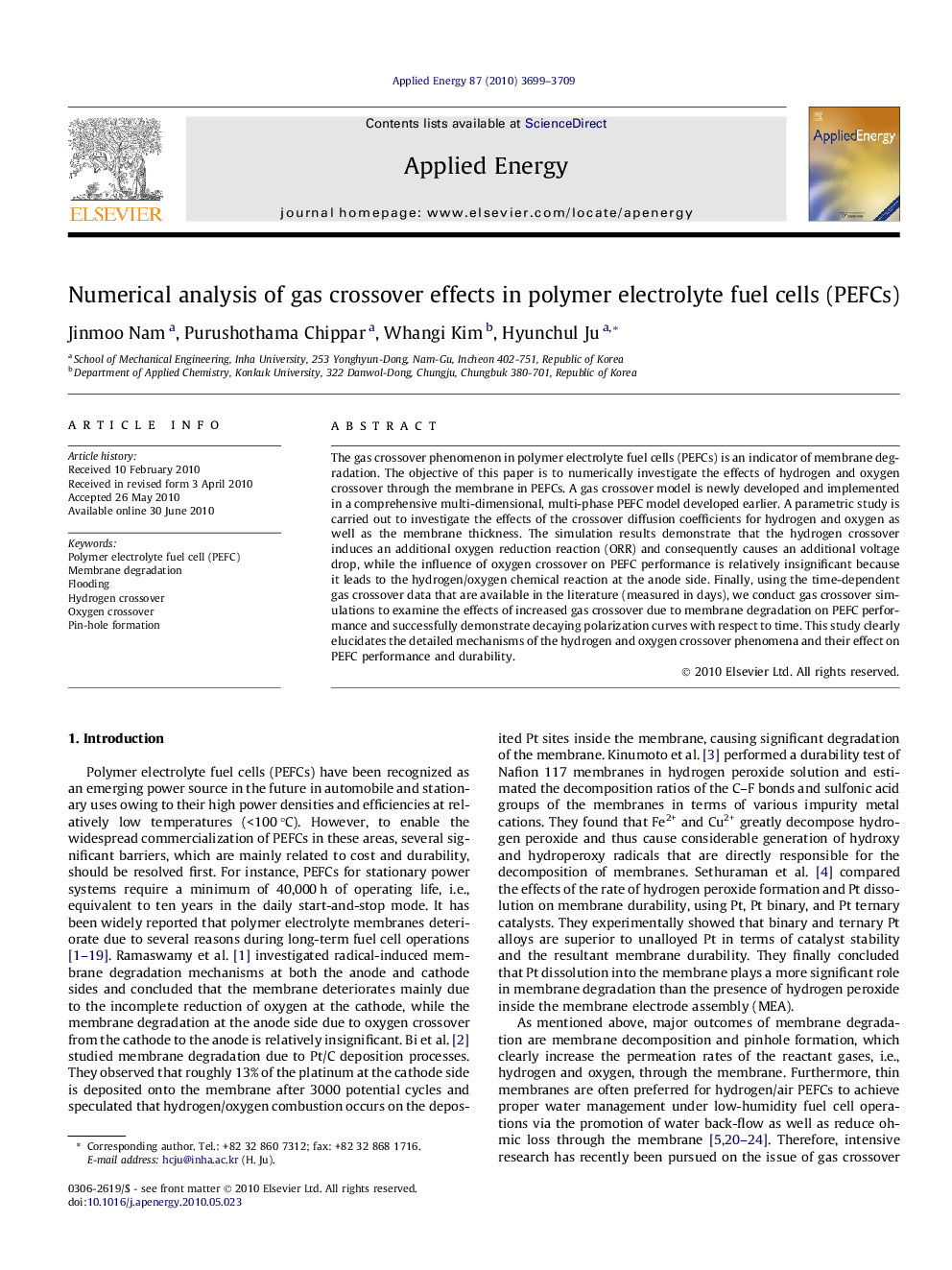| Article ID | Journal | Published Year | Pages | File Type |
|---|---|---|---|---|
| 244576 | Applied Energy | 2010 | 11 Pages |
The gas crossover phenomenon in polymer electrolyte fuel cells (PEFCs) is an indicator of membrane degradation. The objective of this paper is to numerically investigate the effects of hydrogen and oxygen crossover through the membrane in PEFCs. A gas crossover model is newly developed and implemented in a comprehensive multi-dimensional, multi-phase PEFC model developed earlier. A parametric study is carried out to investigate the effects of the crossover diffusion coefficients for hydrogen and oxygen as well as the membrane thickness. The simulation results demonstrate that the hydrogen crossover induces an additional oxygen reduction reaction (ORR) and consequently causes an additional voltage drop, while the influence of oxygen crossover on PEFC performance is relatively insignificant because it leads to the hydrogen/oxygen chemical reaction at the anode side. Finally, using the time-dependent gas crossover data that are available in the literature (measured in days), we conduct gas crossover simulations to examine the effects of increased gas crossover due to membrane degradation on PEFC performance and successfully demonstrate decaying polarization curves with respect to time. This study clearly elucidates the detailed mechanisms of the hydrogen and oxygen crossover phenomena and their effect on PEFC performance and durability.
